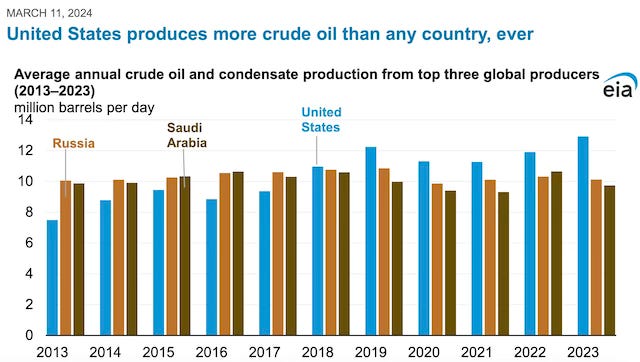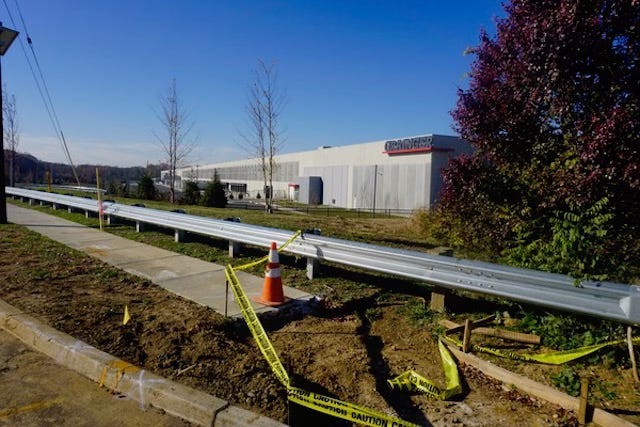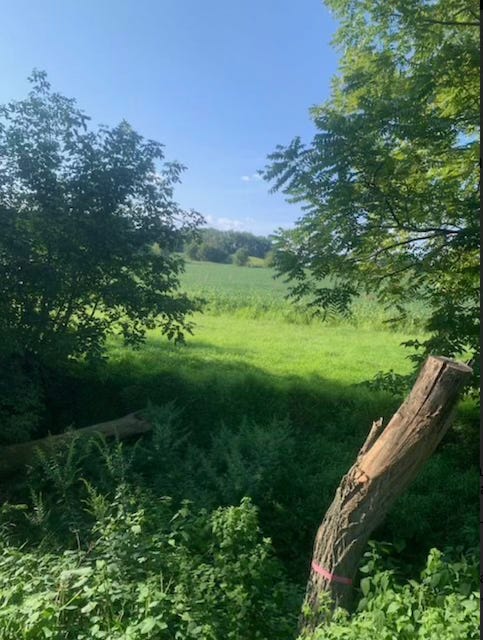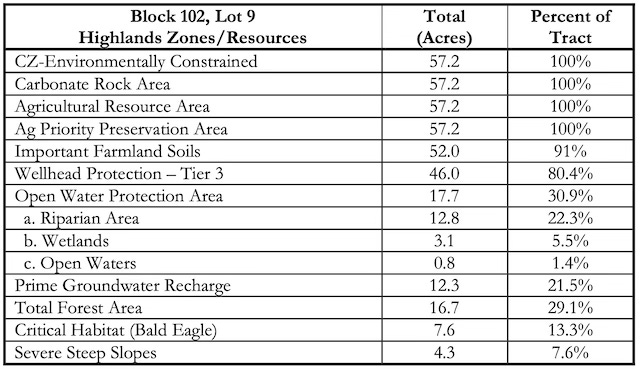Murphy DEP Abruptly Cancels Meeting On Much Needed Updates To Water Quality Standards
Who Derailed The DEP’s Long Delayed Modest Effort?
Today we explore two important questions:
- Who derailed the Murphy DEP’s rather modest attempt to update NJ’s State Surface Water Quality Standards?
- At what point does regulatory delay become deregulation?
With no explanation, the Murphy DEP has indefinitely postponed a “Stakeholder” meeting on long delayed updates to NJ’s Surface Water Quality Standards (SWQS). This process began about 3 years ago, and the DEP was way behind in updating SWQS at that time.
DEP relies on these “Stakeholder” meetings to precede any regulatory proposal, and the meetings typically drag on for many months, even years, as business and industry lobbyists and lawyers are given access and a platform to “kill the baby” in the crib, and defang or weaken any DEP staff attempts to put teeth in regulations, as required by the science, before they are even formally proposed for public review.
So by the time any DEP rule is proposed in the NJ Register, it has already been weakened and watered down by the running the gauntlet of industry political influence on the “Stakeholder” negotiations.
The federal Clean Water Act (“Act”) authorizes and requires that States adopt SWQS to meet the fishable and swimmable goals of the Act. The SWQS must protect human health and the existing and designated uses of a stream or river (or lakes, bays, and wetlands) from pollution. The SWQS form the basis of pollution discharge permits, pollution cleanup plans, and other restrictions on activities that may pollute our streams and rivers. States also set waterbody specific “antidegradation policies” and “implementation procedures” to prevent high quality waters from being polluted.
The Act mandates that States conduct a review of SWQS every 3 years and update SWQS to reflect current science. State SWQS are subject to US EPA review and approval, and must be as least as stringent as federal SWQS, which are called “water quality criteria”.
NJ DEP was once a leader in adopting strict SWQS, in particular by creatively using the Act’s “antidegradation” policy framework to advance strong regulatory protections.
For example, few people (or environmental groups) understand that the SWQS “antidegradation policies and implementation procedures” are what established the “Category One” (C1) high quality stream protection program and the 300 foot buffers to protect water quality. Similarly, the Highlands Act is based on the antidegradation framework. DEP’s enforcement of SWQS has killed major housing and corporate office park development projects and new and expanded sewage treatment plants and sewer lines to serve that development.
But all that regulatory innovation was done over 20 years ago during the McGreevey DEP and the leadership of Commissioner Brad Campbell (full disclosure: I was an architect of these efforts).
Since then, the DEP’s SWQS program has largely been stagnant and gone in reverse on some grounds (e.g. variances and other site specific regulatory relief).
DEP has made little or no progress in expanding the C1 program, applying the SWQS to critical land use programs, and adopting new SWQS to protect wetlands and human health from hundreds of “unregulated” pollutants.
Non point source pollution, particularly from development is not regulated under DEP’s interpretation of the SWQS. Instead, DEP arbitrarily assumes that installation of engineered “best management practices” (BMPs) automatically comply with SWQS, without any science or monitoring of polluted runoff or impacts on nearby water.
The DEP’s “Forestry BMP” is 30 years old and exempts logging and “forestry” from compliance with SWQS and other regulatory standards and permit requirements. The DEP has failed to adopt SWQS to protect wetlands.
There are hundreds of known chemical pollutants that are not adopted in and regulated by SWQS. There are no enforceable nutrient policies to prevent disasters like harmful algae blooms, fish kills, and the ecological decline or risk of collapse of Barnegat Bay.
As a result, NJ’s water quality continues to decline, risks to human health and ecosystems worsen, and polluters and developers are provided huge regulatory relief.
So, I was surpassed to be advised, just 3 weeks ago via an August 4 email, that DEP was holding a “refresher” SWQS Stakeholder meeting on September 11.
The DEP invitation included a specific and rather narrow regulatory issues agenda as well, including the following:
The anticipated SWQS rule amendments will include updates to human health criteria for toxic substances at N.J.A.C. 7:9B and addition of numeric criteria for eight toxic substances, primarily based on recommendations published by the USEPA in 2015, and new human health criteria for 1,4-dioxane, and three per- and polyfluoroalkyl substances which are commonly known as PFAS: perfluorononanoic acid (PFNA), perfluorooctanoic acid (PFOA) and perfluorooctanesulfonic acid (PFOS).
(Note that the federal EPA criteria DEP is required to meet are from 2015, 9 YEARS ago.)
The DEP email emphasized that there had been no change in the issues agenda over literally several years of Stakeholder process:
This meeting features no substantial changes from the June 2022 stakeholder meetings and is intended to be a refresher.
That really disturbed me, because over a year ago, I had objected to DEP’s narrow amendment agenda and urged Commissioner LaTourette to broaden the agenda.
Over this timeframe, I also had filed 2 formal petitions for rule making regarding SWQS. DEP denied both, ironically in part because they had NOT been subject to a Stakeholder development process. Here’s what I urged DEP to do back in August of 2023:
———- Original Message ———-
From: Bill WOLFE <b>
To: “swqs@dep.nj.gov” <swqs@dep.nj.gov>, “shawn.latourette@dep.nj.gov” <shawn.latourette@dep.nj.gov>, “Sean.Moriarty@dep.nj.gov” <Sean.Moriarty@dep.nj.gov>, Maya K van Rossum <maya@forthegenerations.org>, domalley <domalley@environmentnewjersey.org>, “dpringle1988@gmail.com” <dpringle1988@gmail.com>, Anjuli Ramos <anjuli.ramos@sierraclub.org>, “tracy@delawareriverkeeper.org” <tracy@delawareriverkeeper.org>, “kdolsky9@gmail.com” <kdolsky9@gmail.com>, Silvia Solaun <ssolaun@gmail.com>, “jonhurdle@gmail.com” <jonhurdle@gmail.com>, “fkummer@inquirer.com” <fkummer@inquirer.com>, “wparry@ap.org” <wparry@ap.org>, Robert Hennelly <rhennelly55@gmail.com>, senbsmith <SenBSmith@njleg.org>, sengreenstein <sengreenstein@njleg.org>, asmmckeon <asmmckeon@njleg.org>
Date: 08/04/2023 3:16 PM EDT
Subject: SWQS Stakeholder agenda item
Dear DEP Surface Water Quality Stakeholder Manager:
I am responding to your “refresher” SWQS Stakeholder meeting invitation email of 8/4/23.
I request that the Stakeholders meeting include an additional agenda item and that Stakeholders be provided a copy of my petition for rulemaking submitted on 9/22/22, to amend SWQS to Adopt Regulations to Address Acute and Chronic Effects of Aluminum, see:
https://www.nj.gov/dep/rules/petition/pet20220922.pdf
The Department denied this petition on 12/19/22, see:
https://www.nj.gov/dep/rules/petition/pet20220922noa.pdf
The Stakeholders would benefit from knowledge of the content on my petition as well as the bases for the Department’s denial.
Some of the underlying scientific and policy rationales in support of the petition involved the impacts of forestry on water quality. Forestry also has significant climate and carbon cycle implications. Reforms of Department’s various forest management and climate programs and policies are currently underway.
Accordingly, Stakeholders would benefit from an integration of these multiple concerns that are implicated in SWQS.
I appreciate your prompt and favorable consideration.
Obviously, those 2023 recommendations and regulatory petitions were ignored, so upon receipt of the DEP August 4, 2024 meeting invitation, I immediately objected and fired off another email to DEP Commissioner LaTourette, with a copy to US EPA, the press, and NJ environmental groups.
This time, I included additional and more specific recommendations:
———- Original Message ———-
From: Bill WOLFE <b>
To: “swqs@dep.nj.gov” <swqs@dep.nj.gov>, “shawn.latourette@dep.nj.gov” <shawn.latourette@dep.nj.gov>
Date: 08/21/2024 11:59 AM EDT
Subject: Fwd: SWQS Stakeholder Meeting on September 11, 2024
Dear DEP SWQS staff:
I was just made aware of this Stakeholder process and would like to expand the agenda of amendments under consideration to include at least the following:
1) update aluminum criteria – acute and chronic effects. See my recent petition for rule making for the scientific and regulatory basis:
https://dep.nj.gov/wp-content/uploads/rules/petition/pet20220922.pdf
The DEP denial document suggested that an upgrade was pending. The Department wrote:
“the changes the petitioner suggests would benefit from stakeholder
engagement attendant to a thorough rulemaking process.”https://dep.nj.gov/wp-content/uploads/rules/petition/pet20220922noa.pdf
2) update criteria to address currently unregulated contaminants known to be present in waters of the state, including drinking water source waters. See my recent petition for rule making for the scientific and regulatory basis:
https://dep.nj.gov/wp-content/uploads/rules/petition/pet20230901.pdf
The Department denied this petition (see: 55 N.J.R. 2430(a)) but never posted the denial document on the DEP website. I again urge that the denial document be posted on the website
3) Numeric nutrient criteria
4) antidegradation policy and implementation procedures
5) methods and standards to characterize and regulate groundwater and surface water interactions
6) source water protection policies and standards
7) water quality standards for wetlands
8) methods and standards to characterize, monitor, measure and regulate non-point source pollutants, particularly from agricultural lands uses and forestry
I request that the Department distribute this request to all Stakeholders for their review and consideration. I make this request now because I was unable to comment during prior SWQS Stakeholder meetings and had no ability to influence the selection of amendments to be considered. The Department failed to notify me of this SWQS Stakeholder process.
Bill Wolfe
So, who intervened at DEP to derail the scheduled September 11, 2024 Stakeholder meeting?
Was it the polluters, trying to block DEP’s proposal to update several EPA human health toxic criteria?
Or did my recommendations flag serious defects that forced DEP to rethink their issues agenda?
Or is DEP just facing too much political blowback from the “REAL” climate proposed rules and is overwhelmed and can’t fight another regulatory war on SWQS?
When will these long delayed SWQS reforms be finally proposed by DEP?
Will DEP finally close numerous loopholes in enforcing SWQS?
Does anyone care? (if you got this far, you must).







